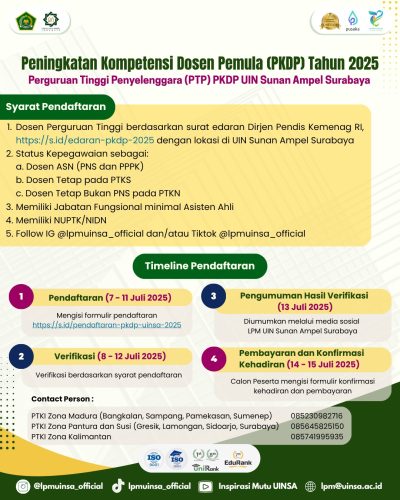Price to Book Value (PBV) is one of the financial ratios used to evaluate the value of a company’s shares. PBV describes the relationship between the company’s stock market price and book value per share. PBV is a ratio used to assess whether a company’s shares are trading at a fair price based on the value of its assets. In simple words, PBV is the ratio between book value per share and stock market price. The book value per share can be calculated by dividing the company’s total equity by the number of shares outstanding. Meanwhile, the market price of the company’s shares is the latest price at which the shares are traded in the market.
PBV itself can be divided into at least 2 types. They are i) high PBV and ii) low PBV. A high PBV is one that indicates that the company’s stock market price is higher than its book value per share. This high PBV also at least shows that investors who already own shares feel very confident about the (positive) performance and good future of the company, so that the share price can increase quickly and high (multi-baggers). Conversely, potential investors will consider buying shares when the company’s PBV is already high. Meanwhile, a low PBV is one that indicates that the company’s stock market price is lower than its book value per share. This low PBV indicates poor (negative) performance and uncertainty of the company’s sustainability. However, this low PBV can also be a golden opportunity for potential investors to buy and own shares, because the company’s shares are valued lower than the value of its assets.
The high PBV and the low one of a company are reflected in the following example:
A company has total equity of $1,000,000 and 100,000 shares outstanding. Then, the book value per share is: Book Value Per Share = Total Equity / Number of Shares Outstanding = $1,000,000 / 100,000 = $10 If the market price of the company’s stock is $15 per share, the PBV is: PBV = Market Price of Shares / Book Value Per Share = $15 / $10 = 1.5. The result of PBV above (1.5) possibly is considered and rated as the high PBV, so few investors are very likely to buy the share, unless the PBV is below 1 such as 0.9, 0.8, 0.7 and so on.
Effect of PBV
Regarding the effect of PBV on the existence of changes, there are at least 4 things that should be understood and known:
First is investor sentiment. PBV can reflect or illustrate the investor sentiment towards the company. A high PBV can indicate investor optimism about the company’s future movement and growth, while a low PBV can indicate distrust or uncertainty about the company’s future.
Second is stock valuation. PBV can be used by investors to assess whether a company’s shares are fairly valued. A low PBV can be considered an investment opportunity, while a high PBV indicates that the stock is overvalued.
Next is financial management. Company management can use PBV to evaluate the efficiency of capital utilization and measure the company’s financial performance in creating value for shareholders.
Last is comparison with similar industries. PBV can also be used to compare a company’s valuation with competitors in the same industry. A company with a lower PBV than competitors is (very likely) considered a better value investment, because low PBV is considered a state of stock in a cheap price condition, even very cheap (under value).
Thus, Price to Book Value (PBV) is a (very) important calculation ratio in analyzing the valuation of company shares. PBV helps investors assess a company’s share price based on the value of its assets, and provides insight into investor sentiment and the company’s financial performance.
PBV and Fasting
Applying Price to Book Value (PBV) to the month of Ramadan, especially in relation to one’s fasting is an interesting analogy to use, as PBV can be used to understand the concept of one’s spiritual and material value in the context of their fasting. PBV is a financial metric that is usually used to evaluate the value of a company by comparing its book value per share to its market price. However, in this context, PBV is also used to measure and value a person’s fasting in Ramadan, as fasting in Ramadan has many benefits and meanings for one’s own life and the lives of others.
1. Book Value
Book value is a very important integral part of the PBV formula. This part (book value) in the context of Ramadan fasting can be interpreted as a person’s spiritual and moral wealth. This wealth at least includes: i) the quality of one’s faith and piety to Allah SWT, ii) the quality of morals and ethics in interactions with fellow humans, and iii) the quality of worship, such as prayer, alms, dhikr, and the like.
2. Price.
Price is also an integral part that is as important as book value in PBV. This part is in the form of efforts and sacrifices made and given by someone who is fasting Ramadan. The price that a person has to pay in fasting Ramadan at least includes: i) refraining from eating, drinking, and things that break the fast from dawn to dusk, ii) refraining from negative behavior, such as swearing, lying, being rude, or others, and iii) sacrificing time and energy for worship such as reading the Qur’an, reciting and studying classical Islamic books, praying, fasting mindfully, or the like.
PBV Valuation of Fasting
Fasting that is carried out by someone can be seen from the perspective of PBV, because PBV is very possible to know (the quality) of fasting that is carried out, whether fasting has a high PBV value or a low one.
1. High PBV Fasting
Under this condition and circumstance, a person has a high book value and also pays a high price for fasting Ramadan. This high fasting PBV valuation reflects the seriousness and strong commitment of the person is carrying out fasting with full awareness and dedication. Thus, this high fasting PBV valuation will be able to increase satisfaction and happiness in worship, and strengthen their faith and piety to Allah SWT after fasting in Ramadan.
2. Low Fasting PBV
In this context, a person has a high book value in their fasting, but the price they pay (effort and sacrifice) is relatively low. It clearly means that although a person who is fasting during Ramadan has great spiritual potential, but they are not able to utilize this potential fully or to the fullest due to a lack of effort and awareness. As a result, this low PBV valuation of fasting can lead to a sense of dissatisfaction or disappointment in fasting during Ramadan: and the potential to achieve desired spiritual goals cannot be realized or realized.
Every muslim who fasts during Ramadan using PBV as a valuation can do so wholeheartedly with adherence, patience, sincerity and the like. In addition, they can also utilize all their spiritual and moral potential. Thus, the higher the PBV of one’s fasting, the higher one’s self-worth. Therefore, everyone who fasts, including us, should make PBV as the valuator.
Happy Ramadan fasting this year……!
[Nasruddin; Dosen Fakultas Ushuluddin dan Filsafat]
















